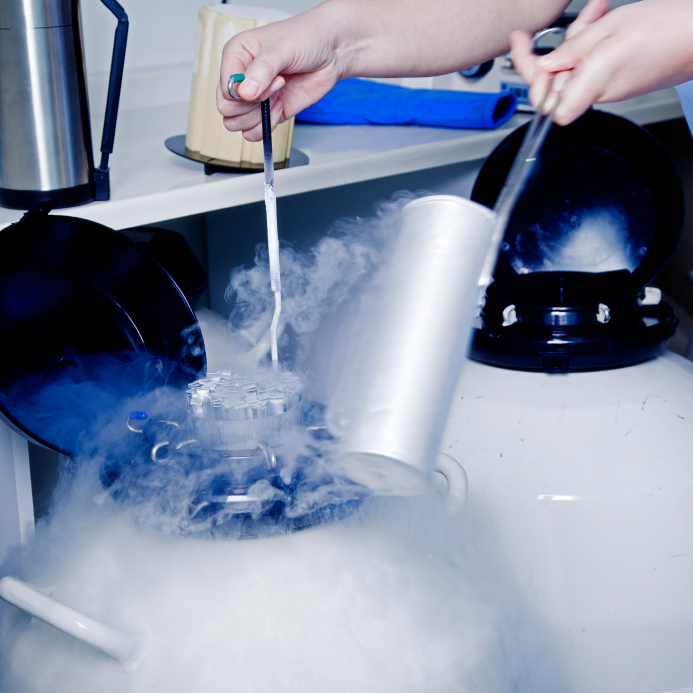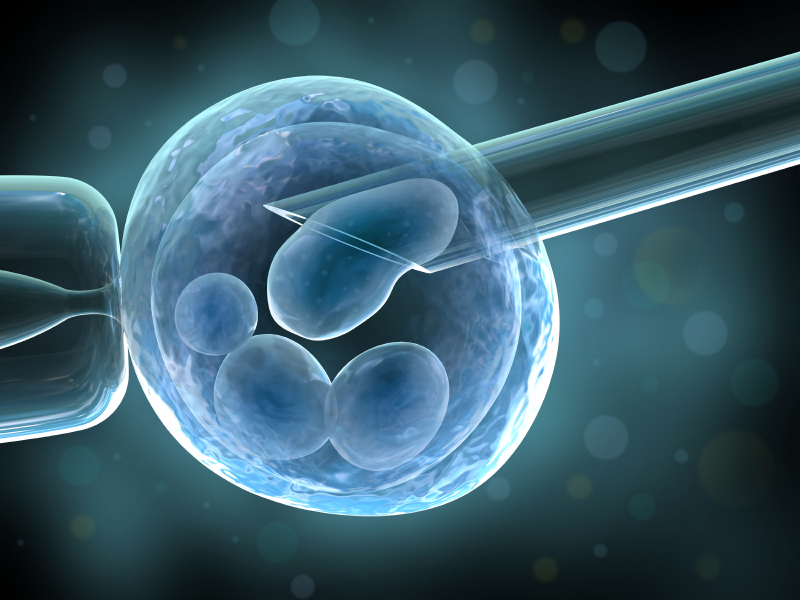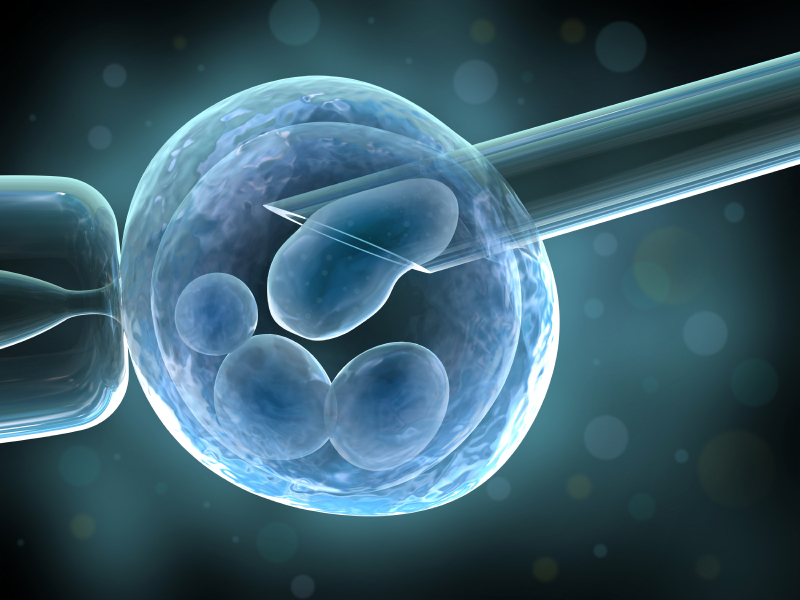Facebook now offers female employees $20,000 (£13,000) pounds to freeze their eggs and in January, Apple will too. So who should be thinking of egg freezing and what happens, really?
Here in Britain, women are delaying childbirth as never before: the average woman now has her first child at 31 in this country, compared to 24 in 1962.
There’s no doubt that fertility wanes dramatically after the age of 35 and, beyond 40, the chance of a woman getting pregnant using her own eggs is about three in ten.

It doesn’t end there. American egg-freezing facilities now hard-sell egg freezing, also known as ‘fertility preservation’ to the parents of single 30-something women who pay for egg-freezing cycles for their daughters to increase their chances of having grandchildren.
It’s just over a decade since egg-freezing was first licensed by the Human Fertilisation and Embryology Authority (HFEA) and only a handful of babies have been born from thawed eggs – about 13 worldwide.
Many eggs are harvested from women whose fertility has been impaired by cancer treatment, but increasing numbers are stored for women who haven’t yet met the right man, or are waiting until later in life to start a family.
Egg freezing is funded by the NHS if carried out for women having cancer treatment. Otherwise it costs around £5,000 per cycle, then £200 a year to pay for safe storage of the eggs.
If a woman chooses to thaw her eggs, an IVF procedure called Intracytoplasmic Sperm Injection (ICSI) is used to insert a single sperm into the egg, at an additional cost of £2,000.
But delaying having children by egg-freezing is no guarantee against infertility, and there are fears that women might be lulled into a false sense of security about their future chances of having a family.
One poll of 3,000 British women by Red magazine found that one in five aged 28-45 would consider egg-freezing. The number of women who froze their eggs in Britain has increased five-fold in the last decade.
Yet the cruel biological reality is that by the time most women consider egg-freezing, it’s already too late.
‘I get many calls from women around the age of 38 who want their eggs frozen,’ says Dr Gillian Lockwood, medical director of Midlands Fertility Services, where over 200 women have had their eggs frozen, and where 50 per cent of British babies born from frozen eggs have been conceived.
‘A frozen egg from a 38-year-old will be better than a fresh one from a 42-year-old, but pregnancy is still not very likely,’ Dr Lockwood adds.
Professor Bill Ledger, former president of the British Fertility Society and professor of reproductive medicine at the University of New South Wales, Australia, says most experts discourage women over 36 from freezing their eggs because the odds are against them conceiving.
He explains: ‘Biologically speaking, the ideal age for a woman to start thinking about freezing her eggs is 30. Then she has a 50/50 chance of having at least one baby later.’
The chance of a woman who freezes her eggs at 40 having a baby from one of those eggs is only 10 per cent. ‘We could end up with a generation of disappointed women who put faith in a process that probably won’t give them a baby,’ Professor Ledger says.
But freezing one’s eggs at 30 could have its downsides, according to Dr Lockwood.
Until recently, eggs were frozen using ‘slow-freeze’ technology. But in 2008, a new process called vitrification or ‘flash-freezing’ – which chills the eggs in a fraction of a second – was licensed in the UK.
‘Early evidence shows eggs frozen by vitrification may work as well as fresh eggs, in terms of the chances of achieving pregnancy,’ says Professor Ledger.
However, there are concerns that the freezing and thawing process may damage egg quality.
The use of chemicals on the egg wall during flash-freezing could potentially damage the egg according to Dr Magdy Assaad, clinical director of the London Fertility Centre, where women can freeze their eggs up to the age of 44.
‘Only eight out of ten eggs survive the thawing process,’ he says. ‘Subsequently, the chances of getting a baby from a frozen egg are about one to three per cent for each egg.’
Egg freezing may be risky for healthy women, says Professor Robert Harrison, a consultant gynaecologist and obstetrician, former president of the International Federation of Fertility Societies (IFFS), and author of The Smart Guide to Infertility (Hammersmith Press £14.99). In around five out of 100 cases, for example, ovaries over-react to fertility drugs, resulting in Ovarian Hyper Stimulation Syndrome (OHSS).
This is a condition where ovaries can swell to several times their normal size. Fluid may leak into the abdomen as a result and, in rare cases, cause internal bleeding, heart attack or death.
However, a new technique now used in some UK clinics and known as ‘Agonist Triggering’ uses milder hormones to stimulate egg production, which dramatically reduces the risk of a woman suffering from OHSS, Professor Ledger says.
SO, WHAT HAPPENS WHEN YOU GET YOUR EGGS FROZEN?
The process takes up to five weeks – here’s an idea of what you’re in for
- Fertility testing – Measures a woman’s ovarian reserve; her fertility potential. If you pass, proceed to the next round.
- Counselling – to ensure this is what you want and you know all the facts. All clinics are entitled by law to provide it, free.
- Daily injections – or a nasal spray to ‘down regulate’ your monthly cycle, the effects are like a fake menopause
- Ovarian Stimulation – this involves daily injections of powerful drugs to stimulate ovaries to produce more eggs than occur in a natural cycle. Side effects include bloating, teariness, nausea, cramping and vomiting.
- Ultrasound scans – during the stimulation phase you’ll need to attend the clinic for these to monitor the number and size of follicles (little sacs in ovaries that later produce eggs)
- Egg Collection – this will take place about 2-5 weeks after you start taking the fertility drugs. An operation done in the clinic under either general anaesthetic or ‘conscious sedation’ with pain relief to collect eggs.
- Eggs washed – then put into an incubator mimicking the inside of a body
- Eggs frozen – using either slow-freeze or the latest flash-freezing techniques.
- Eggs stored – for up to ten years in the fertility clinic at a cost of around £155 a year.
- Eggs thawed – when you choose to thaw the eggs up to ten years later, in-vitro fertilisation (IVF) procedures will be used with your partner’s sperm. Each cycle costs about £2000.
There are currently 45 clinics licensed in the UK for egg freezing, however most of them will freeze eggs only for women who have had their fertility compromised as a result of cancer treatment. The following clinics all freeze eggs for healthy women who choose the procedure to delay childbirth until later.
Midlands Fertility Services midlandfertility.com 01922 455 911
Bridget Fertility Centre thebridgecentre.co.uk 0207 089 1449
IVF Unit, University College Hospital conception-acu.com 0207 837 2905
Care Fertility, Nottingham carefertility.com 0115 852 8100
Like this article? Sign up to our newsletter to get more articles like this delivered straight to your inbox.























































